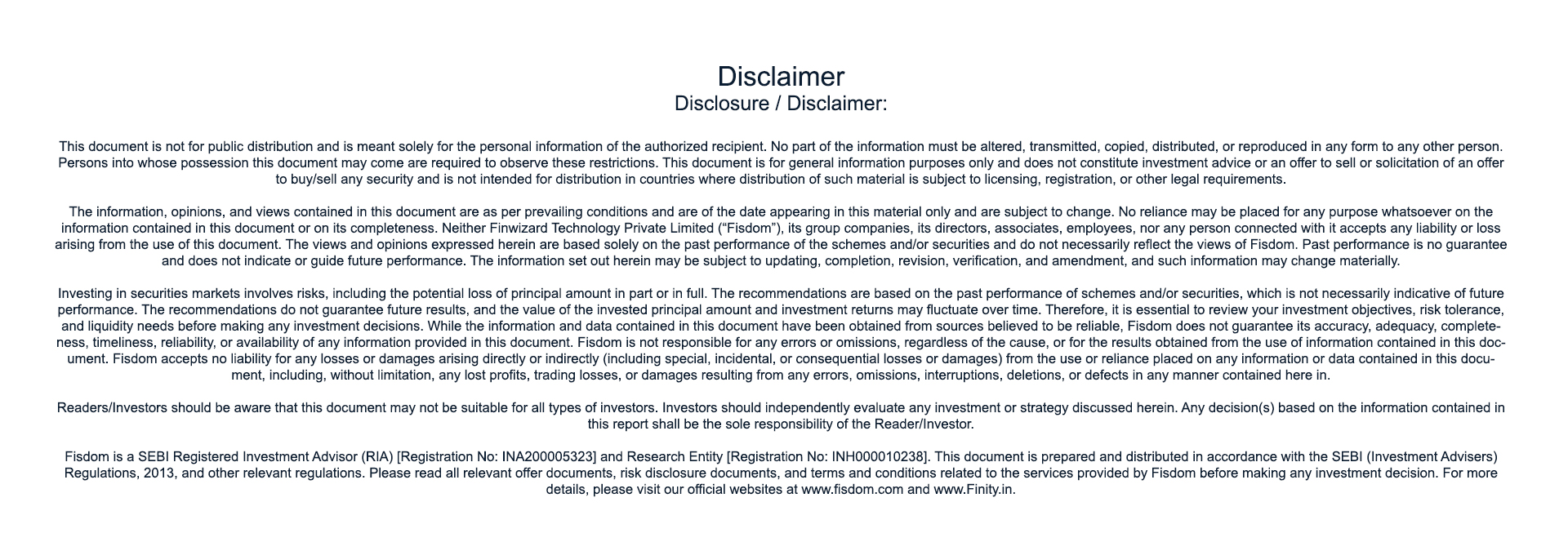
Investing in equity markets requires patience, discipline, and a long-term vision. Systematic Investment Plans (SIPs) provide a structured way to invest regularly, minimizing the impact of market volatility. However, investors often get anxious when they see negative returns in the short term. This study aims to highlight the importance of long-term investing through SIPs, demonstrating how short-term negative returns should not deter investors from their financial goals.
Performance Analysis of SIPs Initiated Since January 2021
The analysis of SIP investments initiated from January 2021 until February 2025 reveals a clear trend. While SIPs started in the last 9-10 months are currently in negative territory, those who began their investment journey earlier continue to generate positive returns.
| Period | Period
(In months) |
Large cap category % | Mid cap category % | Small cap Category % |
| 01-Jan-2021 To 11-Feb-2025 | 50 | 13.4 | 19.7 | 20.6 |
| 01-Feb-2021 To 11-Feb-2025 | 49 | 13.4 | 19.6 | 20.3 |
| 01-Mar-2021 To 11-Feb-2025 | 48 | 13.3 | 19.4 | 19.9 |
| 01-Apr-2021 To 11-Feb-2025 | 47 | 13.3 | 19.3 | 19.7 |
| 01-May-2021 To 11-Feb-2025 | 46 | 13.2 | 19.3 | 19.4 |
| 01-Jun-2021 To 11-Feb-2025 | 45 | 13.1 | 19.2 | 18.9 |
| 01-Jul-2021 To 11-Feb-2025 | 44 | 13.1 | 19.1 | 18.8 |
| 01-Aug-2021 To 11-Feb-2025 | 43 | 13.1 | 19.2 | 18.7 |
| 01-Sep-2021 To 11-Feb-2025 | 42 | 13.2 | 19.3 | 18.8 |
| 01-Oct-2021 To 11-Feb-2025 | 41 | 13.3 | 19.5 | 18.9 |
| 01-Nov-2021 To 11-Feb-2025 | 40 | 13.5 | 19.7 | 19.0 |
| 01-Dec-2021 To 11-Feb-2025 | 39 | 13.7 | 19.9 | 19.2 |
| 01-Jan-2022 To 11-Feb-2025 | 38 | 13.8 | 20.1 | 19.3 |
| 01-Feb-2022 To 11-Feb-2025 | 37 | 14.0 | 20.3 | 19.5 |
| 01-Mar-2022 To 11-Feb-2025 | 36 | 14.1 | 20.5 | 19.7 |
| 01-Apr-2022 To 11-Feb-2025 | 35 | 14.1 | 20.4 | 19.6 |
| 01-May-2022 To 11-Feb-2025 | 34 | 14.2 | 20.5 | 19.6 |
| 01-Jun-2022 To 11-Feb-2025 | 33 | 14.2 | 20.5 | 19.6 |
| 01-Jul-2022 To 11-Feb-2025 | 32 | 14.0 | 20.3 | 19.3 |
| 01-Aug-2022 To 11-Feb-2025 | 31 | 13.6 | 20.0 | 18.7 |
| 01-Sep-2022 To 11-Feb-2025 | 30 | 13.5 | 19.8 | 18.4 |
| 01-Oct-2022 To 11-Feb-2025 | 29 | 13.5 | 19.8 | 18.2 |
| 01-Nov-2022 To 11-Feb-2025 | 28 | 13.2 | 19.5 | 17.9 |
| 01-Dec-2022 To 11-Feb-2025 | 27 | 13.1 | 19.3 | 17.5 |
| 01-Jan-2023 To 11-Feb-2025 | 26 | 13.0 | 19.1 | 17.1 |
| 01-Feb-2023 To 11-Feb-2025 | 25 | 12.7 | 18.5 | 16.4 |
| 01-Mar-2023 To 11-Feb-2025 | 24 | 12.1 | 17.6 | 15.3 |
| 01-Apr-2023 To 11-Feb-2025 | 23 | 11.3 | 16.4 | 14.0 |
| 01-May-2023 To 11-Feb-2025 | 22 | 10.3 | 14.8 | 12.2 |
| 01-Jun-2023 To 11-Feb-2025 | 21 | 9.3 | 13.1 | 10.3 |
| 01-Jul-2023 To 11-Feb-2025 | 20 | 8.2 | 11.4 | 8.5 |
| 01-Aug-2023 To 11-Feb-2025 | 19 | 7.3 | 9.7 | 6.8 |
| 01-Sep-2023 To 11-Feb-2025 | 18 | 6.2 | 8.1 | 4.7 |
| 01-Oct-2023 To 11-Feb-2025 | 17 | 4.9 | 6.3 | 3.0 |
| 01-Nov-2023 To 11-Feb-2025 | 16 | 3.2 | 4.3 | 1.5 |
| 01-Dec-2023 To 11-Feb-2025 | 15 | 0.7 | 1.0 | –1.2 |
| 01-Jan-2024 To 11-Feb-2025 | 14 | –1.1 | –1.6 | –3.5 |
| 01-Feb-2024 To 11-Feb-2025 | 13 | –2.9 | –4.3 | –6.0 |
| 01-Mar-2024 To 11-Feb-2025 | 12 | –5.1 | –7.3 | –8.5 |
| 01-Apr-2024 To 11-Feb-2025 | 11 | –7.3 | –10.9 | –11.9 |
| 01-May-2024 To 11-Feb-2025 | 10 | –10.0 | –15.4 | –16.9 |
| 01-Jun-2024 To 11-Feb-2025 | 9 | –13.1 | –20.1 | –21.3 |
| 01-Jul-2024 To 11-Feb-2025 | 8 | –16.6 | –24.8 | –26.6 |
| 01-Aug-2024 To 11-Feb-2025 | 7 | –19.4 | –28.6 | –31.1 |
| 01-Sep-2024 To 11-Feb-2025 | 6 | –21.4 | –32.4 | –35.8 |
| 01-Oct-2024 To 11-Feb-2025 | 5 | –22.7 | –36.2 | –41.1 |
| 01-Nov-2024 To 11-Feb-2025 | 4 | -20.7 | -38.2 | -44.8 |
| 01-Dec-2024 To 11-Feb-2025 | 3 | –26.0 | –47.3 | –52.3 |
| 01-Jan-2025 To 11-Feb-2025 | 2 | –27.1 | –56.4 | –60.8 |
Source: Fisdom Research, Accord Fintech. All regular plans have been considered for computation. We have considered XIRR for the returns Computation. SIP returns data is the category average SIP returns for the given period
The key observations from the data are:
- Early SIP investors (2021-2022) have accumulated gains, with returns as high as 6% for small caps and 14.3% for large caps.
- Recent SIP investors (2023-2024) are experiencing losses, with the most recent SIPs showing negative
- Market Cyclicality is evident, emphasizing that short-term losses do not define the long-term outcome of SIP
Performance of SIPs Started Post 2018 (For 5-Year Investment Horizon)
To further reinforce the benefits of long-term investing, we analyzed SIPs initiated post Jan 2018. These SIPs have completed a full five-year investment cycle, showing how staying invested through market ups and downs helps investors achieve their financial goals.
| Period | Period (In months) | Large cap category % | Mid cap category % | Small cap Category
% |
| 01-Jan-2018 To 31-Jan-2023 | 60 | 11.5 | 16.8 | 21.3 |
| 01-Feb-2018 To 28-Feb-2023 | 60 | 10.7 | 16.1 | 20.6 |
| 01-Mar-2018 To 31-Mar-2023 | 60 | 10.5 | 15.4 | 20.0 |
| 01-Apr-2018 To 30-Apr-2023 | 60 | 11.6 | 16.7 | 21.7 |
| 01-May-2018 To 30-May-2023 | 60 | 12.7 | 18.3 | 23.5 |
| 01-Jun-2018 To 30-Jun-2023 | 60 | 13.7 | 20.3 | 25.6 |
| 01-Jul-2018 To 31-Jul-2023 | 60 | 14.6 | 21.8 | 27.5 |
| 01-Aug-2018 To 31-Aug-2023 | 60 | 13.8 | 22.6 | 28.7 |
| 01-Sep-2018 To 30-Sep-2023 | 60 | 14.2 | 22.8 | 26.7 |
| 01-Oct-2018 To 31-Oct-2023 | 60 | 13.3 | 21.3 | 27.4 |
| 01-Nov-2018 To 30-Nov-2023 | 60 | 15.4 | 24.2 | 30.5 |
| 01-Dec-2018 To 01-Dec-2023 | 60 | 15.7 | 24.7 | 30.9 |
| 01-Jan-2019 To 31-Jan-2024 | 60 | 17.9 | 26.6 | 32.5 |
| 01-Feb-2019 To 29-Feb-2024 | 60 | 18.3 | 26.6 | 31.5 |
| 01-Mar-2019 To 29-Mar-2024 | 60 | 18.6 | 26.1 | 30.0 |
| 01-Apr-2019 To 01-Apr-2024 | 60 | 19.0 | 26.9 | 31.0 |
| 01-May-2019 To 31-May-2024 | 60 | 18.8 | 28.4 | 32.1 |
| 01-Jun-2019 To 30-Jun-2024 | 60 | 21.0 | 31.2 | 35.0 |
| 01-Jul-2019 To 31-Jul-2024 | 60 | 22.2 | 32.4 | 36.1 |
| 01-Aug-2019 To 31-Aug-2024 | 60 | 22.2 | 32.1 | 35.9 |
| 01-Sep-2019 To 30-Sep-2024 | 60 | 22.5 | 32.3 | 35.8 |
| 01-Oct-2019 To 31-Oct-2024 | 60 | 19.3 | 29.0 | 33.5 |
| 01-Nov-2019 To 30-Nov-2024 | 60 | 18.9 | 28.5 | 32.6 |
| 01-Dec-2019 To 31-Dec-2024 | 60 | 17.8 | 28.1 | 31.6 |
| 01-Jan-2020 To 31-Jan-2025 | 60 | 16.2 | 24.1 | 26.9 |
Source: Fisdom Research, Accord Fintech. All regular plans have been considered for computation. We have considered XIRR for the returns Computation. SIP returns data is the category average SIP returns for the given period.
The data indicates that:
- Despite market corrections, five-year SIPs have delivered positive results across market
- Investors who continued their SIPs during market downturns (such as COVID-19 volatility in 2020) have benefitted from market recovery.
- Compounding and Rupee Cost Averaging have played a crucial role in wealth creation, mitigating short-term risks.
FYI: In CY2018, when these SIPs started, the Nifty 100 TRI delivered a marginal 3% return for the year, whereas Midcap and Smallcap indices were down by 12% and 26%, respectively. This scenario is very similar to the current market correction, reinforcing that even if the market ends on a negative note in the short term, staying invested for a minimum of five years can still result in substantial wealth creation.
Current SIP Trends and Investor Behavior
An analysis of recent SIP data suggests that a significant number of investors are discontinuing their SIPs before tenure completion. If investors are discontinuing their SIPs simply due to short-term negative returns rather than their investment goals being met; they might be making a mistake. Instead of stopping SIPs during corrections, this could actually be the best time to continue investing systematically and take advantage of lower valuations.
| Month | Total No. of Outstanding SIP
Accounts (In Lakhs) |
No. of New SIPs Registered (In
Lakhs) |
No. of SIPs Discontinued/Tenure
Completed (In Lakhs) |
| Dec-24 | 1,032 | 54 | 45 |
| Nov-24 | 1,023 | 49 | 39 |
| Oct-24 | 1,012 | 64 | 39 |
| Sep-24 | 987 | 66 | 40 |
| Aug-24 | 961 | 64 | 37 |
| Jul-24 | 934 | 73 | 37 |
| Jun-24 | 899 | 56 | 32 |
| May-24 | 876 | 50 | 44 |
| Apr-24 | 870 | 64 | 33 |
Source: Fisdom Research, AMFI
- SIP discontinuation should only be considered if the tenure is complete or financial goals are
- Stopping SIPs prematurely locks in losses and prevents investors from benefiting from the market.
- A disciplined approach to continuing SIPs during downturns can lead to higher wealth accumulation in the long run.
Key Takeaways for Investors
- SIPs Work Best in the Long Run: Short-term volatility may result in negative returns, but over a longer period, equity markets tend to generate wealth.
- Staying Invested is Crucial: Exiting during market corrections locks in losses and prevents investors from benefiting from eventual recoveries.
- Market Timing is Irrelevant in SIPs: Investing systematically ensures that investors buy more units when prices are low and fewer when prices are high, averaging out the cost over time.
- Diversification Across Market Caps Matters: While small caps have shown the highest volatility, they have also delivered superior returns in the long run.
- Historical Trends Support SIP Investing: The five-year analysis post-SEBI recategorization validates that disciplined SIP investing leads to wealth accumulation despite market fluctuations.
Conclusion
SIP investments are a proven method for wealth creation in equity markets, provided investors stay committed for the long term. While short-term fluctuations can be unsettling, the key to successful investing is discipline, patience, and a clear financial goal. As seen in our study, despite negative returns in recent months, investors who started their SIP journey earlier have accumulated wealth. This reinforces the importance of ignoring short-term noise and focusing on long-term financial growth through SIPs.















